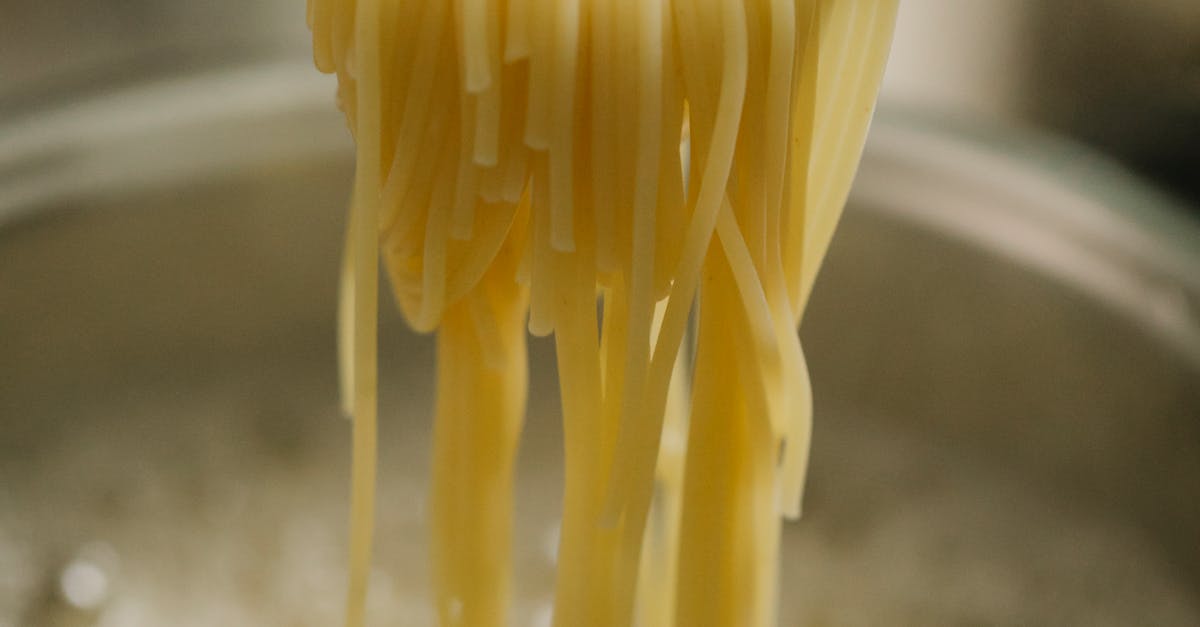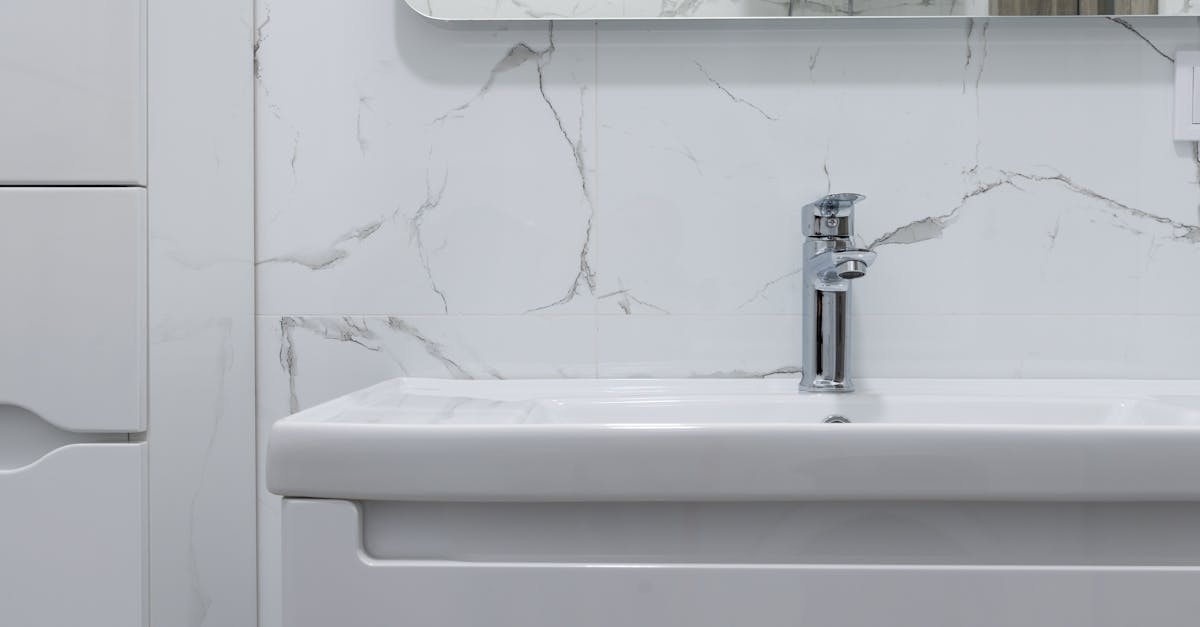
Table Of Contents
Hot Water as a Cleaning Agent
Hot water serves as an effective cleaning agent for drains, particularly in dislodging grease and grime. The heat of the water helps to soften hardened substances, making them easier to wash away. Regular use of hot water can be a preventative measure against future blockages, especially in kitchens where cooking oils and fats frequently accumulate in pipes. Drain cleaning with hot water is a simple yet powerful method that can be incorporated into routine maintenance.
When employing hot water for drain cleaning, it is advisable to pour it slowly and in stages. This allows for better penetration of the debris and ensures that the materials have enough time to dissolve. While boiling water is effective, it is essential to consider the type of piping used, as extreme heat can damage some materials. Balancing hot water treatment with other cleaning methods can enhance overall effectiveness and contribute to maintaining clear and functional drains.
How Hot Water Can Dislodge Debris
Hot water is a simple yet effective method for drain cleaning. It works by loosening grime and debris that may have accumulated within the pipes. When poured down the drain, the heat penetrates the buildup, breaking it down and allowing it to flow more freely. This technique can be particularly useful for clogs caused by grease or soap scum, which tend to solidify in cooler temperatures.
The temperature of the water is crucial in this process. Boiling or very hot water can enhance the dislodging effect. However, care should be taken if using this method on older or fragile pipes, as extreme heat can potentially cause damage. Regular use of hot water in drains can help prevent buildup, ultimately supporting efficient drainage and reducing the likelihood of severe clogs.
EnzymeBased Cleaners
Enzyme-based cleaners are becoming increasingly popular for drain cleaning due to their eco-friendly nature and effectiveness. These cleaners utilise natural enzymes and bacteria to break down organic matter, such as hair, food debris, and grease. Unlike harsh chemicals, enzyme cleaners work by digesting the waste, making them a safer option for both plumbing systems and the environment. Regular use can prevent the build-up of clogs, making them a worthwhile investment for maintaining clear drains.
The effectiveness of enzyme-based cleaners lies in their targeted approach to breaking down materials that contribute to blockages. When introduced into the drain, these enzymes act within hours or days, depending on the severity of the clog and the formulation of the cleaner. This gradual process ensures that waste is broken down thoroughly, rather than forcing it further along the plumbing system. For ongoing drain cleaning, many homeowners find that incorporating enzyme cleaners into their routine helps to keep their pipes clear and reduces the need for more invasive methods.
How Enzymes Work to Break Down Clogs
Enzyme-based cleaners utilise natural biological processes to effectively tackle drain clogs. These products contain specific enzymes that target and break down organic matter such as grease, hair, food particles, and other debris accumulating in the plumbing system. By encapsulating the problem material, the enzymes facilitate a gradual decomposition process which not only clears blockages but also allows for smoother water flow throughout the drain.
The application of enzyme-based cleaners in drain cleaning offers an environmentally friendly alternative to harsh chemicals. As these enzymes work over time, they help to prevent future clogs by reducing organic build-up. Their effectiveness is enhanced when used regularly, maintaining clear drains without the risk of damaging plumbing infrastructure commonly associated with aggressive chemical solutions.
Using a Wet/Dry Vacuum
A wet/dry vacuum serves as an effective tool for drain cleaning. Its powerful suction capabilities can remove both liquid and solid debris from clogged drains. To use this device, ensure you select the right attachment suitable for the task. This helps in focusing the vacuum’s power directly on the obstruction, enhancing the chances of dislodging stubborn blockages.
Before starting, it’s essential to prepare the area. Remove any visible debris around the drain and ensure the vacuum is set to the liquid setting if dealing with waterlogged clogs. With everything in place, position the nozzle over the drain and switch on the vacuum. Monitor the sound of the vacuum as it works; often, a change in sound indicates that the blockage has been cleared, allowing for smoother water flow once again.
Steps to Remove Blockages with a Vacuum
Using a wet/dry vacuum for drain cleaning is an effective method to tackle stubborn blockages. Start by ensuring the vacuum is set to the appropriate function for liquids and that it is fully assembled to prevent any spills. Position the vacuum nozzle securely over the drain opening. Creating a tight seal helps generate sufficient suction to dislodge debris.
Once the setup is complete, turn on the vacuum and allow it to run for a few minutes. Monitor the vacuum’s performance during this time. If the blockage seems to move or dissipate, consider repeating the process for a more thorough clean. Regular drain cleaning can prevent future issues and maintain proper flow in your plumbing system.
FAQS
What is the best way to clean drains?
The best way to clean drains typically involves using hot water, enzyme-based cleaners, or a wet/dry vacuum, depending on the type of blockage and personal preference.
How does hot water help in cleaning drains?
Hot water can help dislodge debris and grease build-up in drains by dissolving oils and loosening tough blockages, making it easier for the waste to flow through.
Are enzyme-based cleaners safe for all types of drains?
Yes, enzyme-based cleaners are generally safe for all types of drains, including septic systems, as they use natural enzymes to break down organic matter without harmful chemicals.
Can a wet/dry vacuum effectively remove drain clogs?
Yes, a wet/dry vacuum can be highly effective in removing blockages from drains, as it can create strong suction to pull out debris and water from the drain.
How often should I clean my drains to prevent clogs?
It’s advisable to clean your drains at least once every few months to prevent build-up and clogs, but more frequent cleaning may be necessary if you notice slow drainage or other issues.





























